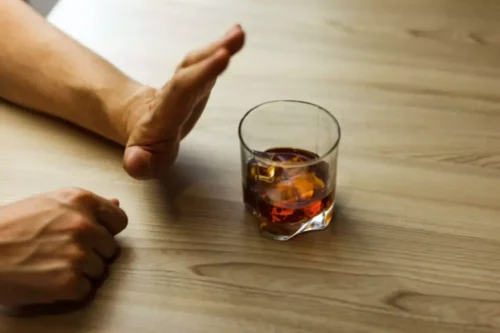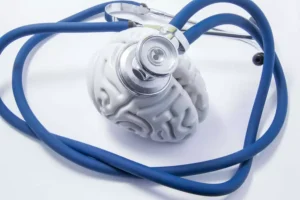
Another approach to music therapy is to encourage members to write songs and play them on an instrument. It could be a guitar, piano, flute or even the maracas or tambourine (which don’t require any musical ability). You can organize a sing-along or organize a favorite song show-and-tell. It’s common for interest and energy levels to flag after an initial period of active participation and engagement in group activities for relapse prevention. To encourage continued active involvement, it’s important for the group facilitator to mix things up to keep the group interesting. When planning relapse prevention group activities, it’s crucial to consider the needs and preferences of the participants.

Additional Ideas for Psychoeducation & Process Groups
Many group activities are enjoyable and help you to de-stress, have fun, and create positive memories linked to your recovery path. Many relapse prevention group activities focus on learning essential coping skills and communication techniques. This gives you the chance to not only learn new skills but also to practice them in a safe and supportive setting. Through a variety of exercises and discussions, group members learn to identify their triggers, manage cravings, and develop practical skills to stay on track. The peer-to-peer format of relapse prevention groups means that everyone has firsthand experience with the challenges of addiction and recovery, making the support more relatable and genuine.
Best CBT Group Activities Essential For SUD Treatment
- Many recovery support groups worldwide are also free of charge, making them an accessible and convenient option for continuing care and relapse prevention once treatment ends.
- Bereavement groups provide members benefits for individuals dealing with grief and loss.
- Seeing your peers succeed boosts your own confidence and encourages you to keep moving forward in your journey to lasting sobriety.
- Ask your clients to share what their tombstone would say if they were to die today.
- The rest of the group comments on the accuracy of their assessment and gives advice.
Learning to let go of negative thoughts, feelings, beliefs, and the need for control can lead to improvements in mental health. Each pair is asked to report to the group on three commonalities discovered. This activity helps individuals feel more connected and provides a sense of belonging. Group therapy sessions focusing on understanding addiction help individuals understand the science behind their condition.
Activities to increase awareness of the benefits of sobriety
To find another treatment program, browse the top-rated addiction treatment facilities in each state by visiting our homepage, or by viewing the SAMHSA Treatment Services Locator. Self-care includes creating a sleep routine, eating healthy meals, staying hydrated, exercising, and spending time with loved ones. People can openly share their thoughts and feelings, reduce self-stigma and shame, and help each other process and grow from difficult experiences or emotions. They are often available at addiction treatment centers but can also be found at community centers or in other public locations.
There are several problems that come with belonging to a group or joining one for the first time. Conversations may lack direction and others taper off as soon as they begin. Talkative members tend to outshine others, while quieter members feel left out. And, starting substance abuse group therapy activities on the right foot is important for their overall effectiveness.

The particular psychotherapeutic conditions a group provides are ideal for creating personal growth and improving self-esteem. Groups can establish a safe, trusting interpersonal environment that allows members to gain new skills and experiences. Role-play can be a great activity for acting out and resolving conflict in a healthy way. Members of the group can take on specific characters and role-play effective discussion, healthy ways to deal with stressful emotions, and setting boundaries. These activities can help build healthy relationships and improve personal emotional wellness.
- You, nor your loved one, are under any obligation to commit to a Legacy Healing Center treatment program when calling the helpline.
- This helpline is answered by Legacy Healing Center, an addiction treatment provider with treatment facilities in California, Florida, Ohio, and New Jersey.
- Group therapy can be used to explore and process a member’s triumphs, challenges, and relapses.
The Benefits of Creative Expression in Addiction Recovery
The rest of the group comments on the accuracy of their assessment and gives advice. Participants in substance abuse groups may have histories of trauma that can be triggered during discussions. Facilitators https://ecosoberhouse.com/ should be prepared to manage potential crises by having trauma-informed strategies in place. Triggers are people, places, feelings, or other things that make you want to abuse drugs.
- Mindfulness is the practice of observing the present moment without judgment.
- Consequently, relapse, or a return to drug and alcohol use, can be an inherent part of the recovery process.
- As the understanding of addiction continues to evolve, professionals and researchers increasingly recognize the vital contribution support groups make in the holistic recovery process.
- Avoid power struggles at all costs, especially when a client challenges the benefits of treatment.
Make sure to give the group plenty of time to process after this activity. Breaking the cycle of addiction requires a thorough comprehension of its stages and triggers. Substance abuse group activities designed to elucidate the addiction cycle help participants identify their patterns, from initial use to cravings, relapse triggers, and recovery milestones.
- Conversations may lack direction and others taper off as soon as they begin.
- We have assessments, practice forms, and worksheet templates mental health professionals can use to streamline their practice.
- Most contracts for those grants are in place, and initial funds have been issued to pay for services.
- Practicing the 12 Steps helps your patients accept their weaknesses while identifying the opportunity for growth in recovery.

The next player repeats the pattern and adds something new, and the process continues until the individuals before them don’t repeat the pattern. The player who loses must try to substance abuse group activities distract the other players as they construct and pass on a new beat. The goal is to keep your attention focused on the rhythm and avoid being distracted by anything or anyone.
TAGS:





























